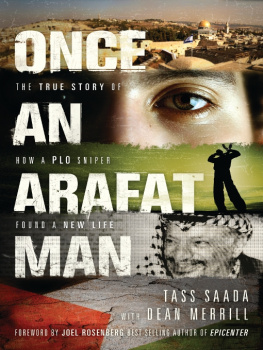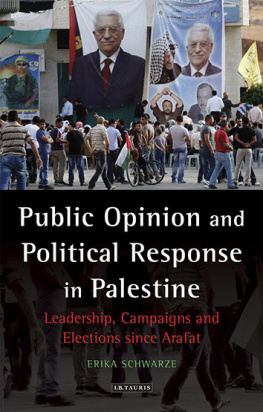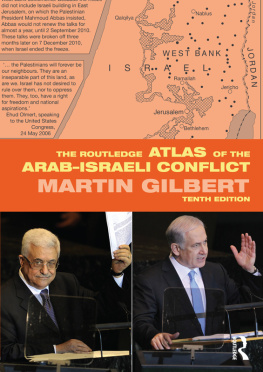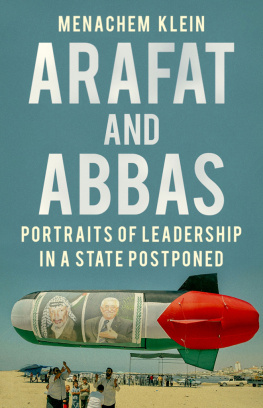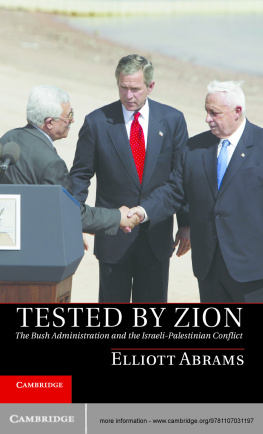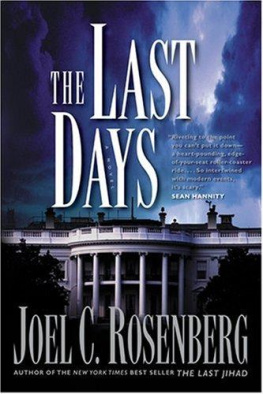ARAFAT
From Defender to Dictator
SAD K. ABURISH

In memory of David
Contents
Something is happening to him, he talks to himself.
Arthur Miller, Death of a Salesman
Most Western biographers of Yasser Arafat admit a measure of failure in the titles of their books. As in hundreds of other works which deal with the Arab-Israeli conflict and related Middle East problems, and thousands of articles by news correspondents and academics, they resort to words such as mystery, myth and hard to explain. This is also true of the single Israeli and Arab attempts to record his life and achievements. There is an implicit wish to excuse the incomplete nature of their efforts, often combined with the suggestion that they have solved a difficult riddle. Nor is this unclear picture helped by Arafat himself. He has cooperated with several biographers, particularly the British writer Alan Hart and the Egyptian author Rasheda Mahran, but he has told them contradictory stories and has steadfastly refused to write his own life story.
That Arafats life is still wrapped in mystery is very odd indeed. He has been in the limelight for the better part of four decades and he is neither unavailable nor shy. In addition to cooperating with biographers, he has probably given more interviews than any other politician alive. Yet, to this day, there is no consensus about his place of birth and who his mother was. Major political issues such as his possible involvement in terrorism and what drove him to sign the much-criticized Oslo Peace Accord are subjects which Arafat admits, denies or interprets selectively, and are therefore infinitely more difficult to track.
There are many reasons why this picture needs to be clarified. Arafat is one of the leading public figures of the twentieth century. His actions have influenced the lives of millions of people, and the need to decrypt him, to set the confused historical record straight and understand the complex relationships which have produced todays Middle East is overwhelming. Moreover, the man is still very much with us, not only in his unique looks, attire and behaviour, but as a partner in a faltering peace process which threatens to disintegrate, with far-reaching consequences for Palestinians and Israelis, the Arab and Muslim countries and indeed the rest of the world. Knowing the real Arafat allows us to fathom the past. More importantly, we need to understand the man and his actions in order to prepare for an uncertain future.
Re-examining Arafats life is timely. Judged by how the West now views him, he has undergone one of the fastest transformations of any public figure in recorded history. In a mere four years he has moved from rejected terrorist to Nobel Peace Prize winner and respected international statesman. In the process the new Arafat, the worlds only President of a difficult-to-define Authority rather than a country, has been forced to assume a new persona more in keeping with this transformed image.
Genuine or not, todays Arafat is probably an extension of what has always existed; even politicians find it hard to reinvent themselves after the age of sixty. For a biographer, the assumption of this new personality and the critical survival issues that Arafat faces offer an opportunity. It allows us to judge him without the veil of secrecy forced on him when he was not accepted, and it enables us to see him from different and more revealing angles at a critical time. This makes it possible to determine whether his man-of-peace mantle was always there and what kind of real person will emerge in the future. Some of the questions whose answers eluded previous biographers whether he would maintain his dictatorial inclinations, for instance, and whether he knew of the corruption of his aides are now disturbingly out in the open, and the tests and challenges presented both by the Israelis and by Arafats own people are likely to reveal other important facets of his private and public character.
Moreover and especially because of the direct involvement of the Palestinians in determining Arafats future there are compelling reasons for a fellow Palestinian to write his biography. Having read the works of most, if not all, of his Western biographers and found them lacking, I am convinced that the bafflement which most of them admit and the mistakes which many of them have made are the results of two things: a cultural divide which foreign writers cannot bridge, and occasionally a lack of understanding of todays Middle East and its politics. Even his Arab biographer, Dr Rasheda Mahran, was an admirer with whom Arafat was said to be romantically involved, and the Israeli Dany Rubenstein, though independent and totally honourable, understandably sees major elements of Arafats life through the perspective of his own country. The assertion that no satisfactory biography of the man exists is justified.
Nor are biographers with extensive first-hand knowledge of the Middle East news correspondents and other specialists in Arab and Palestinian affairs able to surmount the huge barriers which stand in the way of understanding Arafats character: culture, propaganda, secrecy and lack of knowledge. Even after years of involvement in the Arab world, most of them only appreciate Arab culture in broad terms, lack the necessary regional knowledge, never get to meet the ordinary man in the street and go out of their way to popularize or glamorize Arafat. This is not to speak of journalists whose judgement is coloured by the need to continue to work with him. In the process vital ingredients of the story, such as his relationships with Nasser, the Mufti of Palestine and the former Iraqi leader Abdel Karim Kassem, and their claims to Palestinian leadership and Arafats loyalty, are either ignored or demoted. And, although Arafat has often been accused of corruption, no biographer has attempted to explain its nature. The man himself is clean his punishing work schedule gives him no opportunity for personal indulgences but he follows the time-honoured methods of an Arab tribal chief, which includes buying others. This use of sanctioned corruption should be distinguished from personal corruption.
To begin with, Arafats home life and upbringing make him a complex subject. On top of that he is fundamentally Arab and Palestinian; despite the occasional use of what he considers idiomatic English phrases he is an unworldly man with a stronger traditional Islamic outlook than most people realize, and he is a born master of double talk. Foreigners, most of whom depend on local people to interpret Arab ways for them, seldom encounter this type. To appreciate his personal complexes requires knowledge of the Palestinian social structure; to know him is to go back in time, perhaps to another century; and to understand him is to fathom the native bazaar mentality which made him. Even assessing the importance of the effect of his Egyptian accent on his Palestinian constituency and his relations with other Arab countries demands a considerable understanding of inter-Arab prejudices and politics. Among all the Arab leaders of modern times he stands as the most contradictory, a living merger of seventeenth-century Arab thinking and todays street wisdom coupled with an amazing natural ability to handle the most demanding television interview and the Western attitude behind it.
I know both sides of Arafat. I grew up near Jerusalem in the biblical village of Bethany, the grandson of a renowned Muslim judge and a village headman. Both my grandfathers dealt with issues which, in microcosm, resemble what Arafat has had to face and with which he continues to grapple. Like him, both men were practitioners of the art of the possible, natural improvisers with enquiring minds who never tired of inventing solutions and legalizing them by creating a necessary consensus acceptable to others. My father was a correspondent for the


